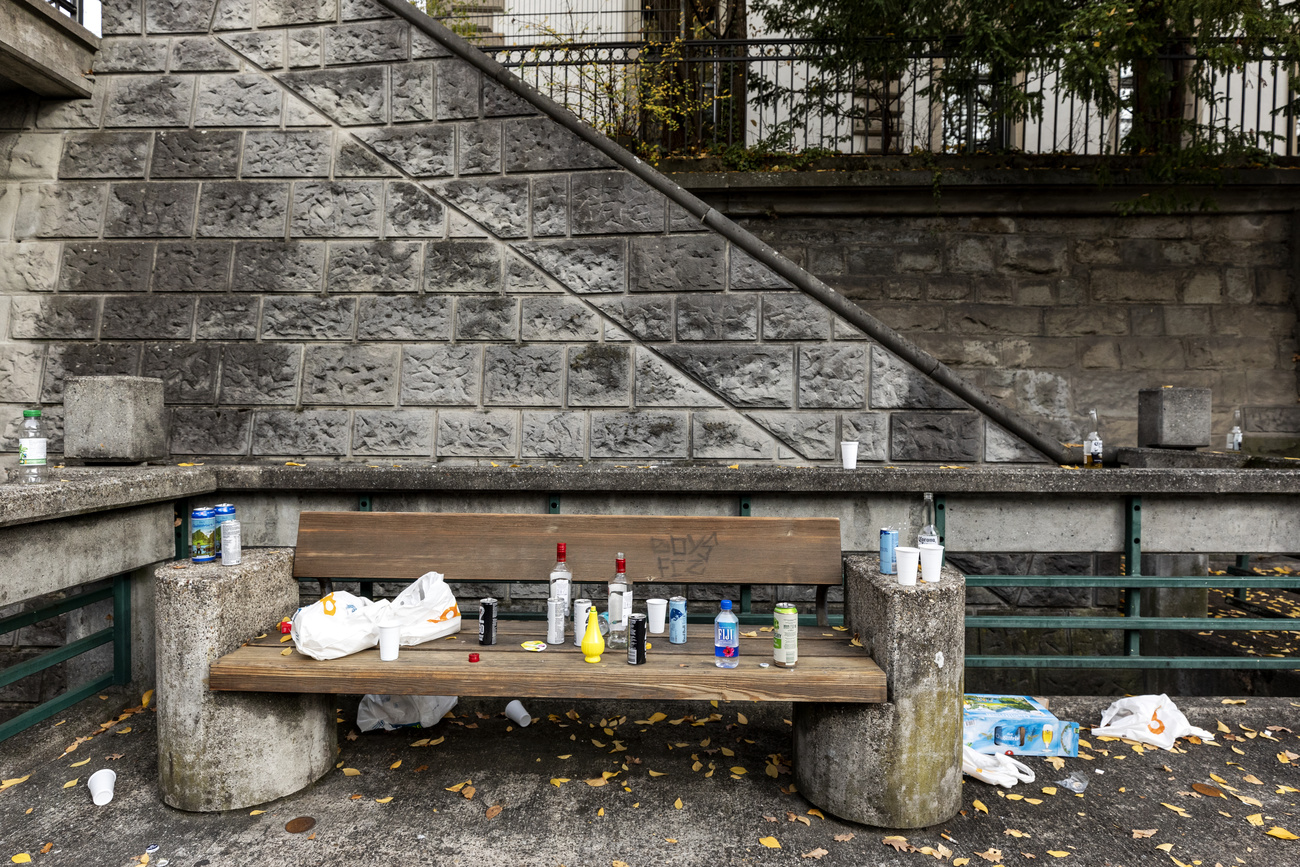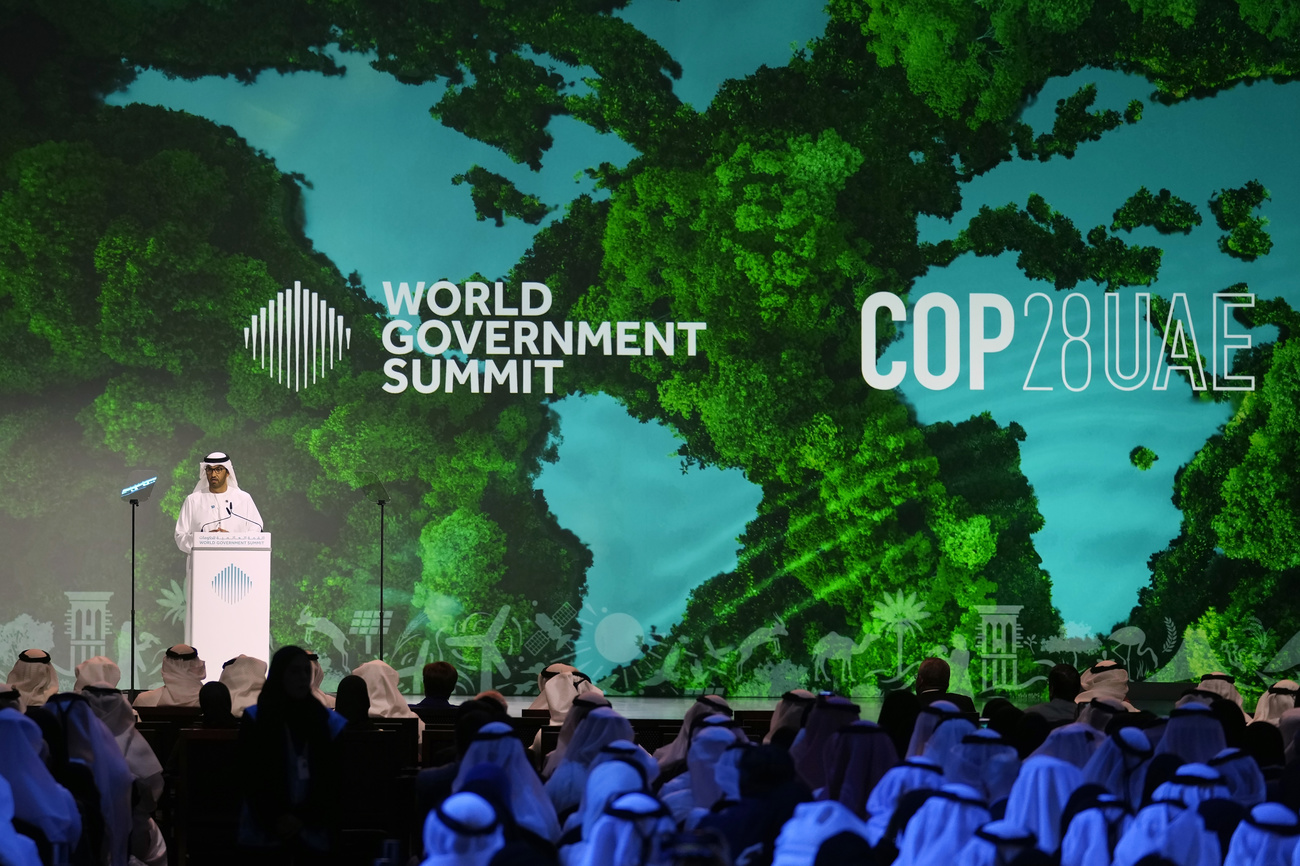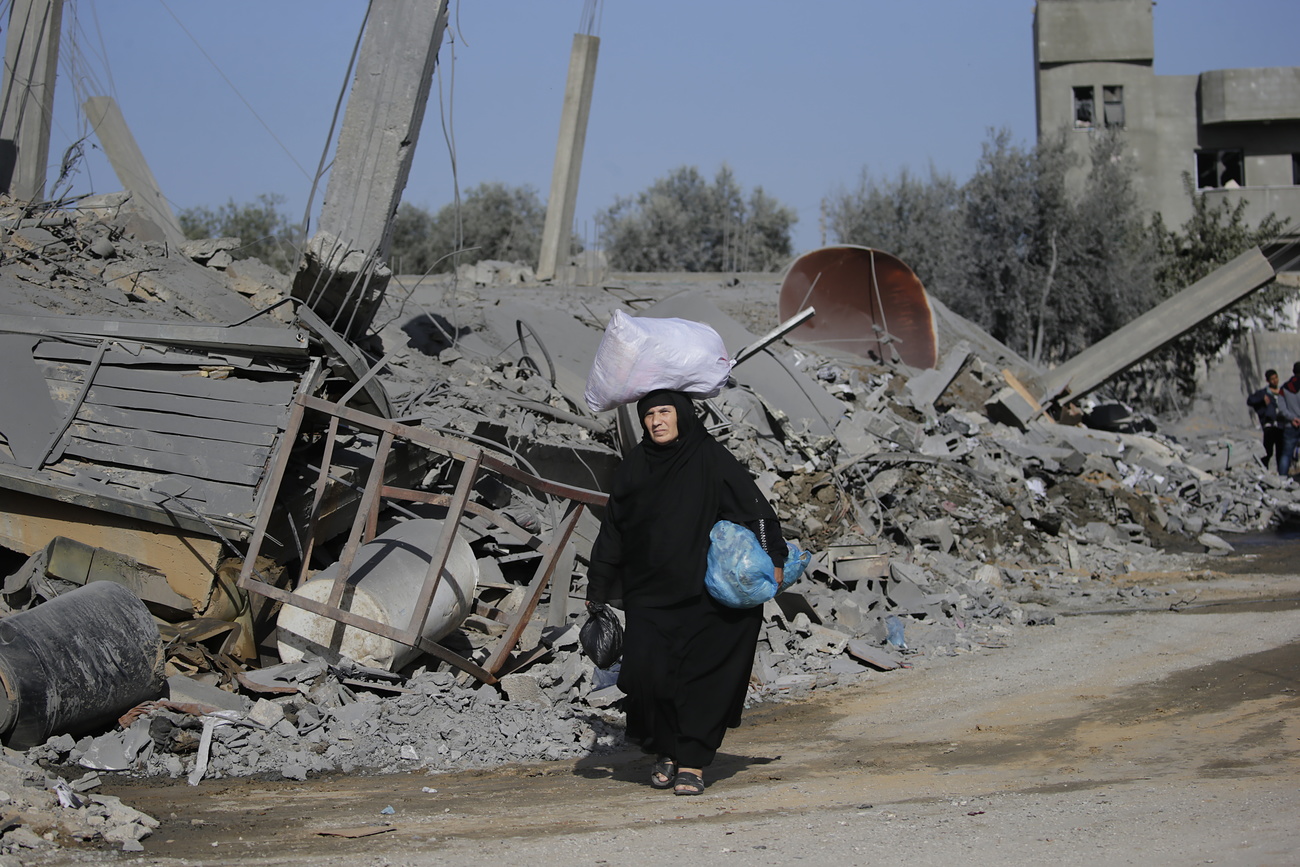
Switzerland Today
Dear Swiss Abroad,
Which concepts made the biggest impression on Switzerland in 2023 and were chosen as Words of the Year?
More on that and other news and stories from Switzerland on Tuesday.

In the news: Less littering, fewer qualified workers, and not enough financial “teeth”.
- The trend towards littering continues to decline in Switzerland. This positive development can be attributed in particular to cities, municipalities and schools. In 2015, 25% of those questioned thought that littering was “rather high” or “high” in Switzerland. By 2023, the figure had fallen to 16%, according to a survey of 3,568 people published today.
- The shortage of qualified workers persists in Switzerland. In a tight employment market the jobs most in demand are in healthcare (nurses, endocrinologists and pharmacists), IT (developers, software and applications analysts, SAP consultants) and engineering (mechanical engineering technicians, heating planners).
- UBS Chairman Colm Kelleher has called for the Swiss financial industry regulator FINMA to be given more powers after the downfall of Credit Suisse showed the authority lacked sufficient “teeth”. Kelleher also provided an update on the bank’s integration of its former rival, saying UBS had so far over-delivered, but that complexities lay ahead.

COP28, the UN’s annual climate change conference, starts in Dubai on Thursday. The talks begin as carbon offsets are under scrutiny, pushing Switzerland to review its climate strategy.
As Paula Dupraz-Dobias explains, the more than 190 countries at the two-week conference will be under more pressure than ever to increase their carbon-cutting commitments. At the end of what is expected to be the Earth’s hottest year on record, and with scientific warnings of more climate effects to come, they will need to find ways to put the Earth on track to achieve agreed climate goals.
Felix Wertli, Switzerland’s new climate ambassador, said ahead of the conference that pushing for more ambition to keep within the 1.5°C limit was the top goal for the Swiss delegation at COP28. He said finding a strategy to exit fossil fuels while boosting strategies for renewable energies and energy efficiency was key.
Beyond pushing for further cuts in the use and production of fossil fuels, one issue that has remained unresolved at the climate talks has been clear rules regarding carbon offsetting. Our article contains a useful video explainer to how offsets work.
Critics say that companies and countries alike may rely too heavily on the credits generated from the system. “The whole premise of offsetting is that you can continue business as usual and pay for credit that’s generated elsewhere. It’s a flawed premise,” Erika Lennon, senior lawyer at the Center for International Environmental Law, told us.
Patrick Hofstetter, climate and energy policy head at the World Wide Fund for Nature (WWF) Switzerland and part of the wider Swiss negotiating team in Dubai, said that in Switzerland the government scheme would need a “reality check”. He said the Klik Foundation, responsible for financing the bilaterally agreed offsets, is by its own admission lagging behind in helping the country achieve its climate targets and reduce emissions by at least 50% by 2030. The government, he said, would have to pitch in financially to help fill the gap. “Understandably, with reports of flawed projects regarding voluntary carbon markets, some care should be taken before you agree to a project,” he warned.
SWI swissinfo.ch will be covering all the important Swiss-related developments from COP28.
More

Which words and concepts have made the biggest impression on Switzerland and were chosen as Words of the Year?
It turns out that “Monsterbank”, “décombres” (rubble), “GPT” and “Solarexpress” were the winners in Switzerland’s four national languages.
Monsterbank came top in the German-speaking part of the country because the relief following the merger of UBS and Credit Suisse was immediately followed by fears that the newly created giant bank could harbour even more risks, the Zurich University of Applied Sciences (ZHAW) announced today.
“Of the 1.5 million words highlighted in the corpus compiled by the ZHAW, ‘décombres’ is one of those that will appear most frequently in press articles in 2023,” it said. The term refers both to the earthquakes that have struck Syria and Turkey and to the rubble of war suffered by civilian victims around the world (pictured, a woman in Gaza). According to the ZHAW, the word also “highlights the reshaping of a global geopolitical order in competition with the global south”. In Switzerland, “décombres” refers to the collapse of Credit Suisse and the fragility of the financial system.
The word of the year in Italian-speaking Switzerland is “GPT”, an English abbreviation that is commonly used in Italian to refer to artificial intelligence. In Romansh-speaking Switzerland, the word of the year is “Solarexpress”, an initiative to promote photovoltaic installations on Alpine peaks.
Read the rest of the article for the runner-up words. If you’re interested in why so many English words are used in Switzerland, you might enjoy this article I wrote a few years ago.

In compliance with the JTI standards
More: SWI swissinfo.ch certified by the Journalism Trust Initiative

